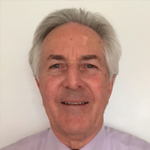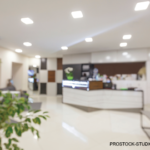Over the past two decades, many physicians have ironically abrogated their intellectual abilities by resigning themselves to a fate of being worthless unless they work for someone else. Many factors have contributed to this process, including, but not limited to, declining reimbursements, escalating costs, onerous electronic record mandates, intense competition from hospital conglomerates and burdensome governmental regulations.
Rheumatologists have attempted to fill this black hole by forming large groups, creating profitable make-work (e.g., bone density and ultrasound studies) and relying on their national organization to protect their interests. Despite these maneuvers, disillusionment with private practice is rampant, patient care is truncated, prescribing patterns are dictated in advance, and traditional clinically oriented teaching of new physicians has been replaced by instructions on how to be a test orderer.
How does one reinvigorate the mundane, reduce stress, enthusiastically greet the workday and derive satisfaction from a job well done? By going back to basics:
- Solo practice;
- Owning your own office building;
- Reducing taxes;
- Declining participation with insurance carriers (including Medicare);
- Re-embracing the art of the narrative;
- Dispensing with electronic records;
- Having family members run the office;
- Hiring no nurse practitioners or physician assistants;
- Publishing niche research dealing with multiple medical-legal scenarios to enhance attorney referrals;
- Having no patients admitted to your hospital service (consults only, and good relations with hospitalists);
- Using hematology/oncology colleagues for all infusions; and
- Fostering patient recommendations by devoting adequate time for face-to-face discussions during all office encounters.
Think this is impossible and impractical? Think again. This formula has proved immensely satisfying to those who have embraced it, has promoted meaningful productivity and self-worth via indefinite postponement of the retirement myth, has gradually reduced the length of the work week and has allotted ample time for teaching, continuing education, recreation and family events. Just what the doctor ordered.
Arthur E. Brawer, MD, has been the director of rheumatology at Monmouth Medical Center in Long Branch, N.J., for the past 40 years. He is an associate clinical professor of medicine at Drexel University School of Medicine in Philadelphia. Dr. Brawer continues to maintain a solo rheumatology practice and continues to actively teach students and residents.


